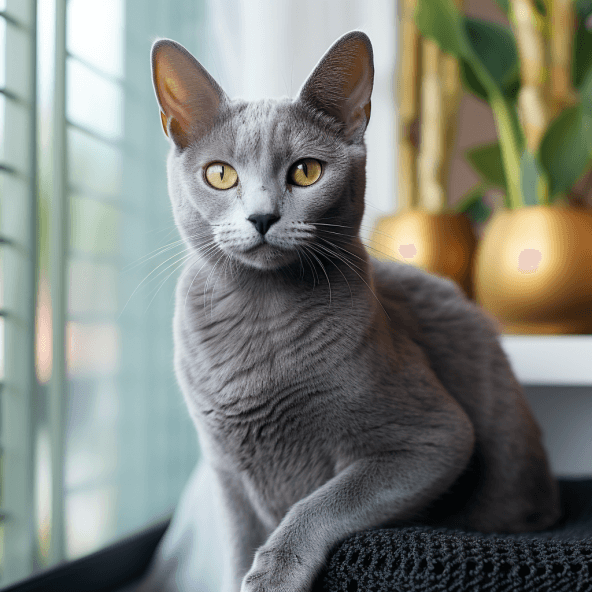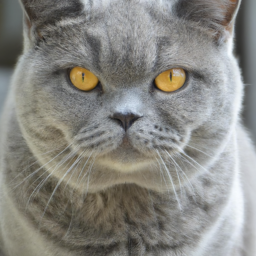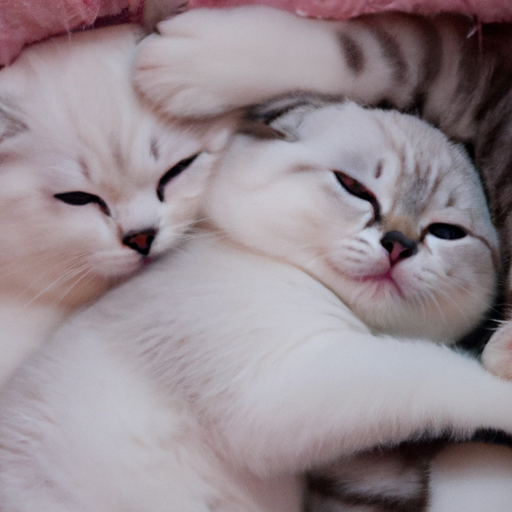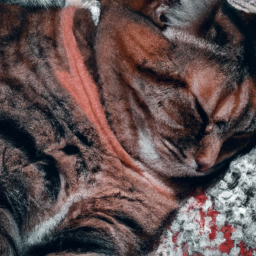Why Do Cats Hiss
You’ve probably experienced that chilling moment when a cat hisses. The hair might stand up on the back of your neck, and the apparent sudden shift from fluffy companion to potential danger could leave you puzzled. In the article “Why Do Cats Hiss,” you’ll discover the science and reasoning behind this unique feline behavior. Understand more about your feisty feline’s communication, signals, and the mysteries of their hissing.
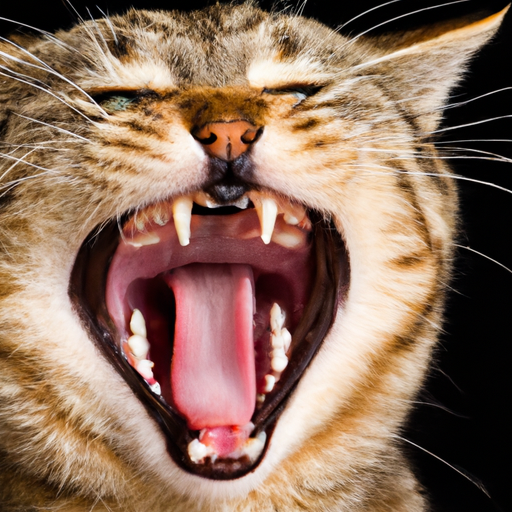
Understanding Cat Behavior
You’ve probably at some point wondered why cats act the way they do. Now, let’s dive into the world of our feline friends to better understand them. There’s a lot to learn if you listen to their purrs, watch their tail flicks, and observe their behaviors!
Basics of feline behavior
By nature, cats are independent creatures with a strong sense of territory. They vary from being aloof to clingy, playful to lazy, and everything in between. Their activities involve hunting(even if it’s just pretend), grooming, and sleeping (they sleep almost 16 hours a day). Additionally, cats communicate with extra-ordinary vocal sounds, body language, and of course by marking their territories with scent.
Significance of vocalization in cats
Vocalization in cats is a significant part of their communication. Through different types of meowing, purring, growling, hissing, or even silence, cats express a full range of emotions and intentions. When a cat is chatty, it might be that she is eager to say “hello,” request a snuggle, or remind you that her food bowl is empty. On the other hand, a hiss or growl might signal a threat, discomfort, or stress.
The Phenomenon of Hissing
Yes, the infamous hiss- the universal cat language that signals “stay away.” If you find your cat hissing, it’s anyone’s guess that you’re treading on thin ice.
Origin and evolution of hissing
Hissing is a primal vocalization in cats, a behavior deeply rooted in their evolutionary past. Observing feral cats and large cats in the wild, we can see this behavior has served as a survival strategy through thousands of years. The hissing sound, along with the accompanying bared teeth and widened eyes, is an imitation of a snake, one of the universally recognized threats in the animal kingdom.
Hissing as a form of cat communication
Hissing serves as a clear indicator to let other animals or humans know they’ve overstepped a boundary. With those long-drawn ‘sssss’ sounds, cats are announcing their angst and urging the unwelcome entity (that could be you!) to back off.
Reasons Why Cats Hiss
Hissing is not a random act. So, let’s delve into the reasons why a cat may hiss.
Defense mechanism
Hissing is a primary defensive mechanism in cats. It says, “I am scared, and I am ready to protect myself if necessary.” It’s a clear warning to the would-be attacker to back off.
Reaction to threat or discomfort
Threats or discomfort can invoke the hiss response in cats. These threats can range from a traumatic vet visit, an onslaught from a fellow pet, or that random roomba whizzing around the house.
Expression of fear or anxiety
Cats are creatures of habit. Any sudden changes or new elements introduced into their routine environment can cause fear or anxiety, leading to a hissing response.
Role of Hissing in Social Dynamics Among Cats
Hissing is not just limited to human-cat interactions. It plays a pivotal role in maintaining social hierarchies among cats too.
Inter-cat hissing: A means of establishing dominance
Inter-cat hissing is presumably one of the most palpable dynamics in cat society. Cats use hissing to establish dominance over each other, maintain boundaries, and to resolve disputes.
Hissing at kittens: Teaching them the ropes
Mama cats often use hissing to discipline and teach their kittens about acceptable behavior. It’s crucial for the kittens to learn these early life lessons to navigate the world safely.

Hissing Directed at Humans
Let’s look at the potential reasons why a cat might hiss at the people around it.
Cats hissing at unfamiliar people
Cats are creatures of routine, and they do not particularly enjoy surprises, especially in the form of unfamiliar people. Hence, a sudden visit from a house guest might spur the hissing response from your cat.
Reaction to inappropriate handling
Cats might hiss if they feel manhandled or restrained. It’s their way of telling you they need some personal space and control.
Cats hissing at their owners: possible reasons
In some cases, cats might even hiss at their owners. This could be due to discomfort, fear of a perceived threat, changes in the environment, or even pain from underlying health issues. Pay attention to any changes in your cat’s behavior to decipher the causes.
Over-Expressive Cats: Hissing Without Apparent Reason
Does your cat seem to hiss even when everything seems fine? Let’s understand why this could be happening.
Possible health issues
Chronic health conditions and pain can make cats more irritable and likely to hiss. If your cat seems excessively hissy, it’s wise to have her checked out by a vet.
Feline idiopathic cystitis
This is a common bladder inflammation in cats, which may lead to increased instances of hissing. The discomfort and pain may cause them to hiss without an apparent external reason.
Triggering stimuli and sensitivity issues
Some cats are more sensitive compared to others. The trigger for hissing can be as minor as a new perfume you are wearing or the sound of a loud television.
Reducing Incidences Of Hissing
So, how can you, as a cat parent, reduce the instances of hissing?
Understanding and respecting cat boundaries
Give your cat space and respect her boundaries. Avoid forcing her to do anything she’s not comfortable with. Remember, she’s not a toy, but a creature with emotions just like us.
Slow and gentle introduction of new elements
Introduce any changes in the environment slowly and gently to help your cat adapt without undue stress.
Effective handling techniques
Learn proper cat handling techniques, which include reading her body language and responding respectfully.
Professional Help for Cats that Hiss Excessively
If your cat continues to hiss excessively, it might be time to take professional help.
Consultation with a vet
Start with a health check-up. A veterinarian can help rule out any health issues that may be causing the excessive hissing.
Behaviour therapies
Behavior therapy might help in some cases where the hissing is tied to stress or anxiety disorders. A professional animal behaviorist can help you understand and address these issues.
Possible medical treatments
In some cases, medical treatments might be required to address underlying physical issues that are causing the excessive hissing.
How to Handle a Hissing Cat
So, what should you do when confronted with a hissing cat?
Immediate safety measures
The immediate priority should be to ensure your safety and the cat’s. Steer clear of her, especially her claws, and give her the space she needs.
Decoding the hiss: determining the cause
Next, try to understand what’s causing the hiss. Did you catch her by surprise, accidentally step on her tail or is she not feeling well?
Moving forward: approaches to soothe and reassure a hissing cat
Provide comfort and reassurance to a hissing cat. Speak softly, offer her favorite treats, or try to distract her with a toy.
Hissing in Feral Versus Domestic Cats
Is there a difference in hissing behavior between feral and domestic cats? Let’s explore.
Hissing in wild or feral cats: A survival tool
In the wild, hissing is a crucial survival tool that helps feral cats ward off threats. It’s a critical part of their defense mechanism.
Domestic cats: Is hissing less frequent?
Domestic cats might hiss less frequently than their feral counterparts but when they do it’s usually because they’re communicating displeasure or fear. This hissing behavior is no less important – it’s a valuable form of communication that tells us more about how our feline friends are feeling.
To sum it up, hissing is a natural and normal cat behavior, aimed at communication. Understanding why and when it occurs is the first step in nurturing a healthy and respectful relationship with your feline friend. Remember, patience and understanding are key when navigating the complex world of cat behavior.


